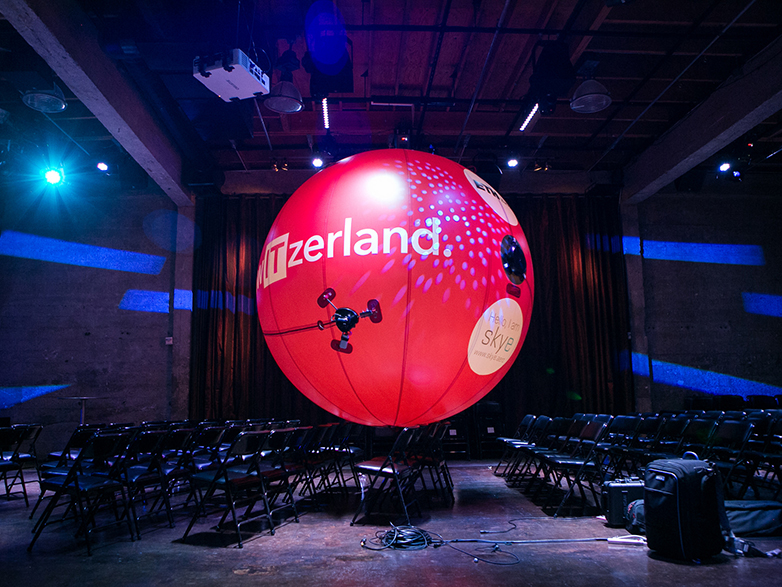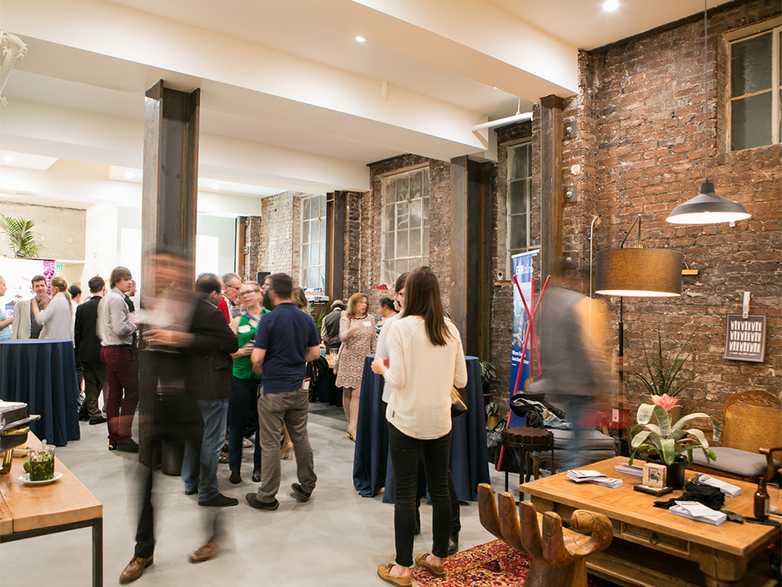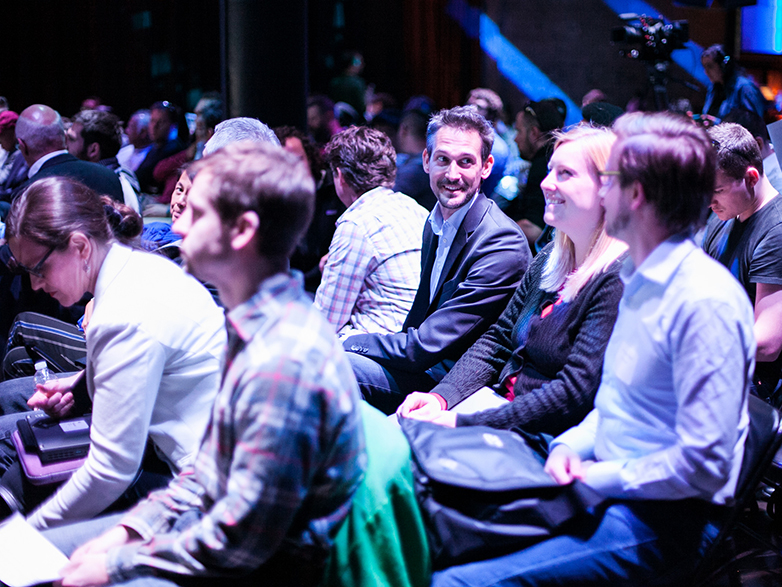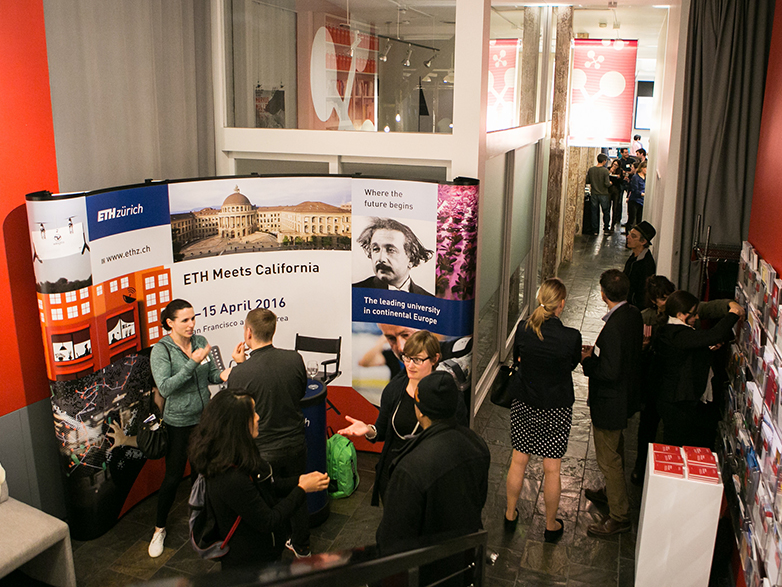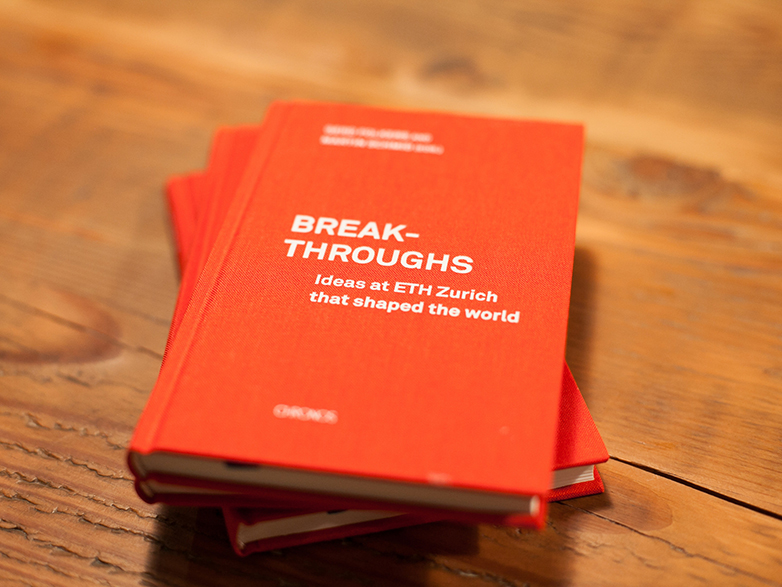ETH meets California
ETH Zurich unraveled the mysteries of science and technology in a series of public gatherings held in San Francisco and the Bay Area called, "ETH Meets California". The events focused on raising awareness and strengthening ETH Zurich's ties in the region.

Professors, researchers, students, alumni, and company founders from ETH Zurich met up with their Californian counterparts in a series of 12 events from 6 – 15 April 2016. In multiple venues across San Francisco, Berkeley, and San Jose, ETH Meets California created opportunities for ETH Zurich, its event partners, and collaborators to address pressing societal issues and raise awareness of the university and its contributions in this key region of the world. Each event highlighted the depth and breadth of ETH Zurich research: From the Cybathlon to Citizen Science and from a student study tour on Tackling Food System Challenges with IT Innovation to Autonomous Flying Robots.
Switzerland, Silicon Valley of robotics
When one of the world's leading authorities on robotics, Chris Anderson, CEO of external page3D Roboticscall_made and former Editor and Chief of Wired magazine referred to ETH Zurich as, "The best robotics university in the world," it captured the attention of the audience and journalists. During the Autonomous Flying Robots event, Anderson described Switzerland as "The Silicon Valley of Robotics," saying that the Swiss possess a unique skill set in mechanical elements that began with micro-mechanical machines, led to megatronics, and later modern robotics. Anderson spoke about the future of commercial drone technology as "the biggest big data opportunity we have seen."
Roland Siegwart, Professor in the Autonomous Systems Lab highlighted the institution's research and development of autonomous flying robots including: the ETH spin-off company Aerotain’s external pageSkyecall_made – a safe and friendly blimp, the Wyss Zurich project, external pageWingtracall_made – a robot that takes off and lands like a helicopter, but flies like a fixed wing aircraft, and AtlantikSolar – a world record breaking autonomous solar airplane. Siegwart spoke about the relationships between universities and industry as a way to facilitate knowledge transfer and provide researchers and young entrepreneurs with a conduit for bringing new technologies into the marketplace.
Island Avatars
Academic partnerships help to synthesize knowledge exchanges creating a cross-disciplinary and more holistic approach to research. The academic partnership between ETH Zurich and University of California Berkeley researchers is just one of many examples. More than 80 researchers from 20 institutions are collaborating to create the first full-scale simulation of a complex social-ecosystem called, The Island Digital Ecosystem Avatar (external pageIDEAcall_made). Located on the French Polynesian island of Moorea, one of the world's best known tropical ecosystems, the project models the connections between the climate, the environment, biodiversity, and human activities in order to predict changes on a broader scale across the Pacific Ocean and the planet.
Engaging the public with technology
ETH Meets California also gave researchers the opportunity to engage the general public in science and technology. Robert Riener, Head of the Department of Health Sciences and Technology, ETH Zurich spoke about the Cybathlon – a series of Olympic-style competitions to advance assistive devices scheduled to take place in Zurich on 8 October 2016. Riener founded the Cybathlon event as a platform for developing assistive technologies useful for the daily life of persons with motor disabilities - like Henry Evans a quadriplegic, mute, and Robotics Activist who joined the panel via robotic technology. The Cybathlon facilitates a global knowledge exchange and a lifts the barriers between patients, scientists, people with disabilities, and the public.
The value of international outreach
International events like, ETH Meets California afford ETH Zurich a platform to strengthen its ties in regions that are of value to the growth of the university. International outreach not only strengthens ETH Zurich as an institution, it also supports the growth and prosperity of Switzerland. Hans-Ulrich Tanner, Consul General of Switzerland in San Francisco who attended some of the events and conducted the closing ceremony explained, "Switzerland’s welfare is dependent on global welfare. It is dependent on new forms of infrastructure: on technical communications, on sustainable design, and, crucially, on international networks. For this reason, it is vital that ETH Meets California helped to forge flexible and durable partnerships among ideas, individuals, and institutions in two of the world’s most innovative regions."

